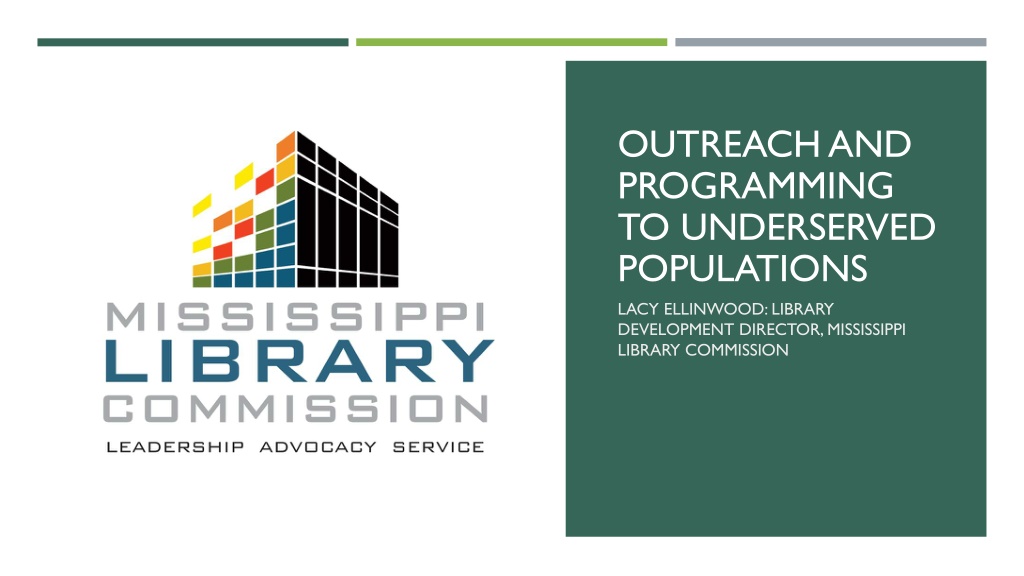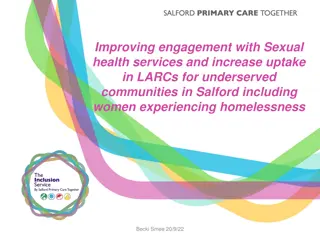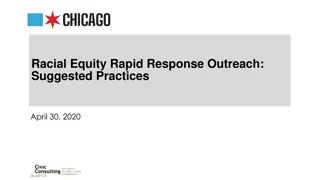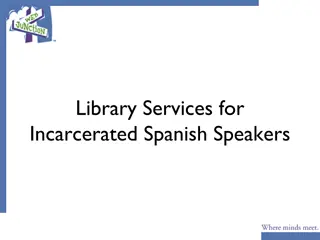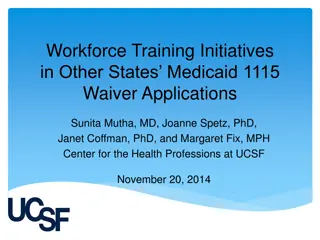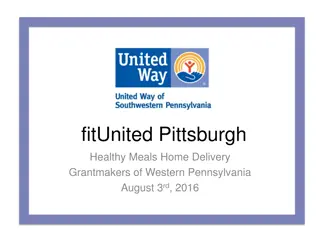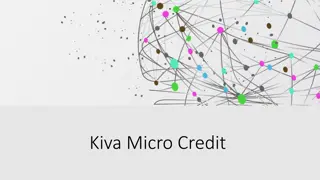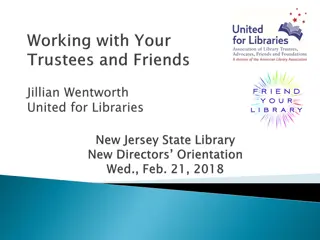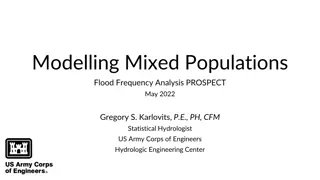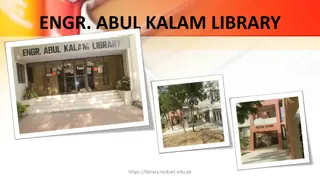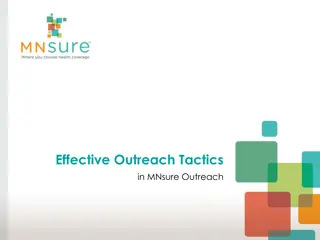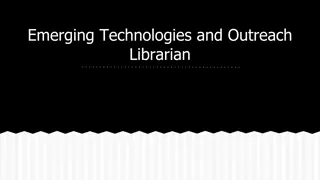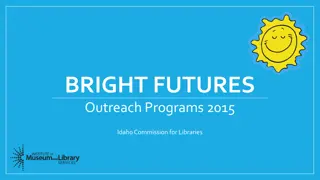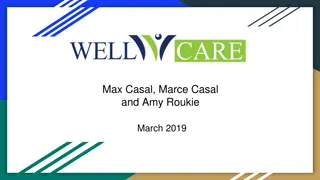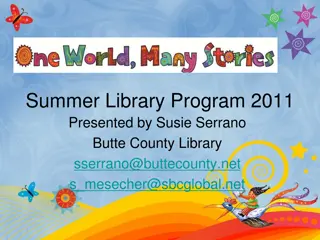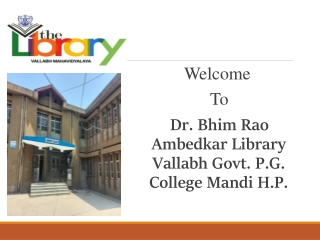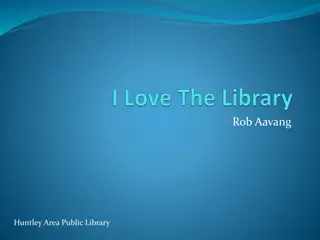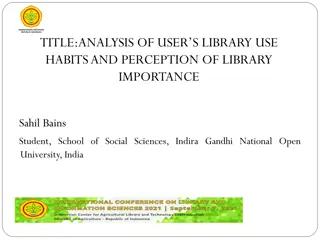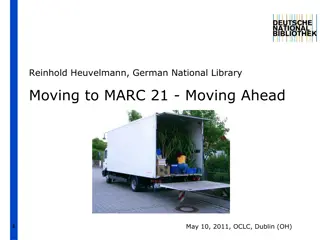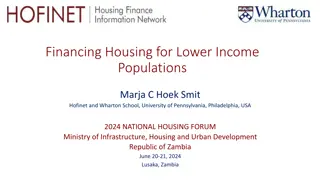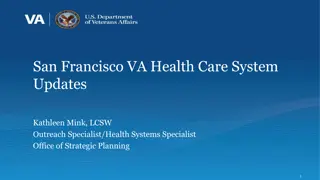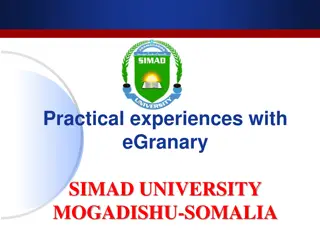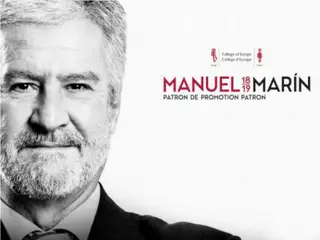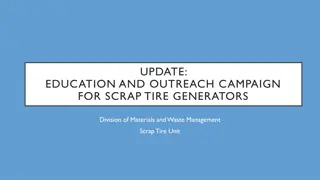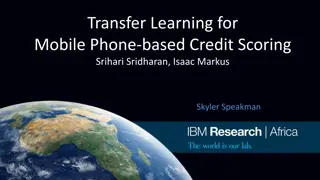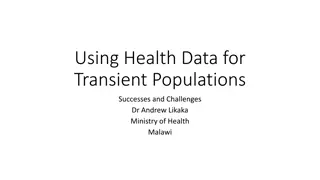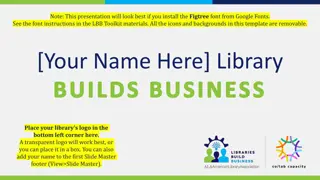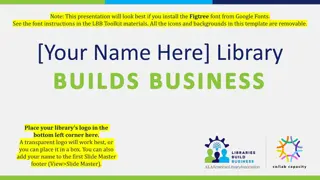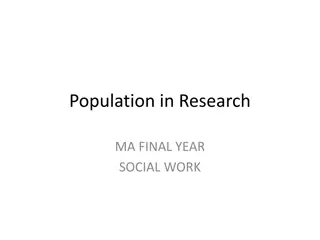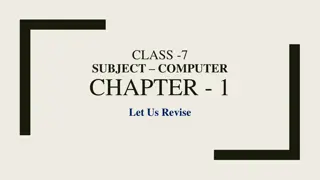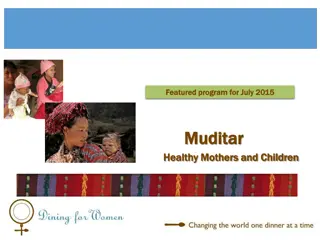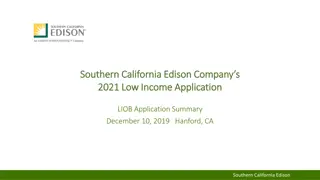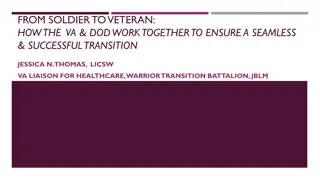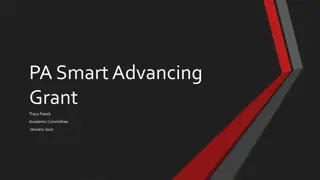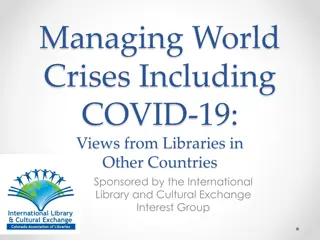Empowering Underserved Populations: Library Outreach and Programming Initiatives
Helping underserved populations through targeted library services such as supporting incarcerated individuals and their families, assisting those experiencing poverty or homelessness, and advocating for greater diversity and inclusion in library programs.
Download Presentation

Please find below an Image/Link to download the presentation.
The content on the website is provided AS IS for your information and personal use only. It may not be sold, licensed, or shared on other websites without obtaining consent from the author. Download presentation by click this link. If you encounter any issues during the download, it is possible that the publisher has removed the file from their server.
E N D
Presentation Transcript
OUTREACH AND PROGRAMMING TO UNDERSERVED POPULATIONS LACY ELLINWOOD: LIBRARY DEVELOPMENT DIRECTOR, MISSISSIPPI LIBRARY COMMISSION
WHERE TO START? Incarcerated People and Ex- Offenders. Families and Children. People experiencing poverty or homelessness. Teens, Women, and Persons of color. Citizens with disabilities. Visual, Physical, and Invisible.
SERVICES TO INCARCERATED PEOPLE AND EX-OFFENDERS Develop a LibGuide or webpage highlighting resources at the library for people leaving corrections and resources for their families while incarcerated. Freedom Ticket Connect incarcerated parents with their children. Checking out recordings with books to kids. Outreach to Adult Correction Faculties to educate about self-employment resources. Host programs for families with incarcerated members. Modify existing programs to be inclusive.
WHAT TO DO IN THE COMMUNITY? Coordinate a book drive of paperback books for young adults in juvenile detention facilities. Southern Poverty Law Center & Big House Books Friends groups can hold a fundraiser to build a collection of resources that will assist incarcerated individuals and their families. Contact area facilities about their prison library needs or ways that civic organizations can help. A Shared Sentence: The Devastating Toll of Parental Incarceration on Kids, Families and Communities By the Annie E. Casey Foundation
SERVICES TO POOR AND HOMELESS PEOPLE People experiencing poverty or homelessness may be limited or prohibited by many issues, including: Library card or access policies. Prohibitive fines or fees. Staff who are not trained or uncomfortable. Limited promotion at places that serve people experiencing poverty or homelessness. Limited access to the library building. Lack of programs or resources.
WHAT LIBRARIES CAN DO TO COMBAT THESE ISSUES Remove barriers to library access, particularly fees and overdue charges. Increase public awareness through programs, and displays of poverty related library resources and services. Train library staff on issues affecting poor people. Partner with other agencies, organizations, and advocacy groups in order to develop programs and services. Encourage library staff to the collection of food and clothing. Promoting related efforts concerning minorities and women.
INITIATIVES & IDEAS TO STEAL FROM The Gathering Place: Women, Technology and the Denver Public Library (DPL) Quarterly visits to local day shelters to acquaint women with technology and the library. Winter Series: Greensboro Public Library (GPL), NC Strives to meet basic needs: clothing, hygiene products, heath care, and food. Street Books/Street Librarian: Portland, OR Provides free books without fines or the need for a permanent address. More resources available on WebJunction.
SERVICES TO PEOPLE WITH DISABILITIES Include in the planning and evaluating of library services & programs Universal Design Many accessibility "fixes" are inexpensive. Remember not all disabilities are visible. ALSC/Candlewick Press "Light the Way" Grant October 1st, 2018 Deadline
HOW LIBRARIES CAN BE INCLUSIVE Make sure staff are prepared to work with all patrons. Do staff members have ready access to a list of resources for patrons with disabilities? Offer extended loan and reserve periods. Promote FREE Statewide Services Example: Talking Book Service at MLC Collect subject specific materials and diverse children's materials. Employ an American Sign Language (ASL) interpreter for programs/events. Monthly ASL story-time?
QUESTIONS? Lacy Ellinwood Library Development Director 601.432.4154 lellinwood@mlc.lib.ms.us
